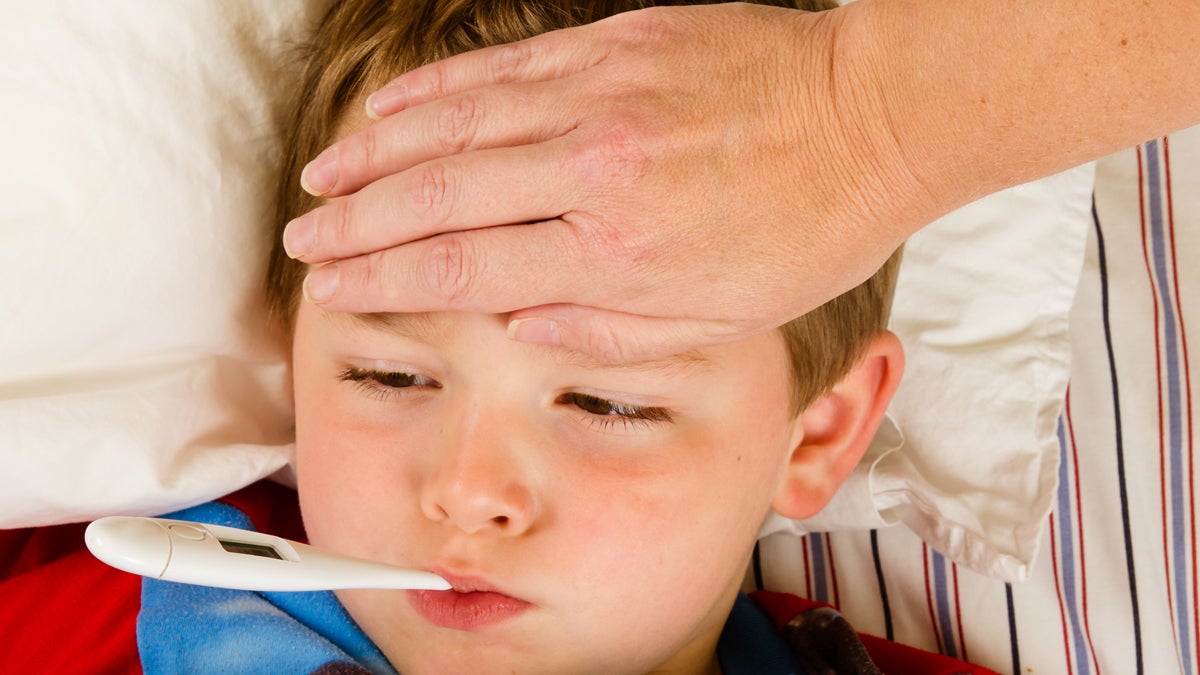When to be concerned about your child’s fever

(Shutterstock photo)
What should I do?
Choose your child’s age:
Under 3 months old
3 months – 6 months
6 months – 2 years
2 years and up
Call a doctor if your child has a temperature of 100.4°F or higher. This is the medical definition of a fever. For an accurate reading take the temperture rectally. If the doctor can’t be reached, go to the emergency room.
Call a doctor if your child has a temperature of 101° F or higher. Also call a doctor for any fever (100.4°F) lasting longer than 24 hours or with co-occurrence of these symptoms: difficulty breathing, difficulty sleeping, irritability, unusual rash, severe headache, sore throat, or repeated vomiting or diarrhea.
Call a doctor if your child has a temperature of 103° F or higher. Also call a doctor for any fever (100.4°F) lasting longer than 24 hours or with co-occurrence of these symptoms: difficulty breathing, difficulty sleeping, irritability, unusual rash, severe headache, sore throat, or repeated vomiting or diarrhea.
Call a doctor if your child has a temperature of 104° F or higher. Also call a doctor for any fever (100.4°F) lasting longer than 72 hours or with co-occurrence of these symptoms: difficulty breathing, difficulty sleeping, irritability, unusual rash, severe headache, sore throat, or repeated vomiting or diarrhea.
It’s the middle of the night and your kid is running a fever. Looking for medical information at 3 a.m. can be agonizing and scary, so we put together a chart with guidelines for what to do in various situations.
Dr. Stephen Aronoff, the chairman of the department of pediatrics of the Temple University School of Medicine, says parents can’t just assume that a fever alone is cause for concern.
“If the child is older than three months, then you have to start using assessments such as, how sick does the child look? Are there other symptoms that are there? Does the child have any underlying problems?”
Children who have chronic pre-existing conditions such as severely premature birth, cystic fibrosis, sickle cell disease, cancer, or any children younger than three months, should see a doctor about a fever regardless of how high it is.
According to Dr. Aronoff, parents can give their kids an age appropriate dose of Tylenol or Ibuprofen to bring their fever down but never give a child aspirin.
Lastly, always make sure that your child drinks plenty of fluids, and are not over-swaddled in clothing or blankets. For more age-specific guidelines, and information about what symptoms are cause for concern, see the graphic above.
WHYY is your source for fact-based, in-depth journalism and information. As a nonprofit organization, we rely on financial support from readers like you. Please give today.



